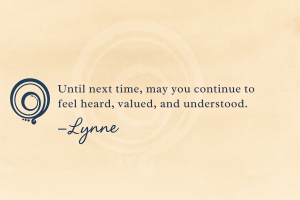Dear Therapist, my husband and I often fight over insignificant things. When I try to bring up something important with my partner, it turns into an argument. How do I express myself without it blowing up into a fight?
-Frustrated spouse
Dear Frustrated spouse,
I hear how discouraging it feels when important conversations with your partner quickly spiral into arguments. Sometimes even small discussions can unexpectedly escalate, which often points to underlying issues that haven’t yet been resolved. Avoiding these talks can lead to resentment and distance, so finding healthier ways to communicate is essential.
Here are some strategies that may help:
- Choose the right time. Important conversations go best when both partners are calmer and free of distractions. If it’s hard to find the right moment, try scheduling it together so you both know when to give each other full attention.
- Use “I” statements. Saying “I feel…” instead of “You always…” keeps your words from sounding like blame. For example: “I feel it’s difficult to bring up our finances. I’d like us to be on the same page, can we talk about our budget?”
- Practice active listening. Show your spouse you’re trying to understand by reflecting back what you hear: “I hear you saying you don’t want to feel like I’m scrutinizing your purchases.” If you’re not sure, ask clarifying questions.
- Take turns speaking. Interruptions can fuel conflict. Some couples find it helpful to use an object (like a sponge) as a “talking piece”, whoever holds it speaks, and then passes it on when they’re finished. This helps both partners feel fully heard.
- Pause when emotions rise. If things get heated, take a break and agree to return to the conversation. For example: “I’m feeling flustered and need 20 minutes to collect myself. Let’s circle back then.” The key is to always come back, so your partner knows you’re not avoiding them.
Healthy communication takes practice, but with small adjustments, even tough conversations can become opportunities for deeper connection and understanding.

This column is for informational purposes only and is not a substitute for professional mental health care. Reading this does not create a therapist-client relationship. If you are struggling with anxiety or another mental health concern, please reach out to a licensed professional in your area for support. If you are in crisis or thinking of harming yourself, please call 988 in the U.S. or go to your nearest emergency room.